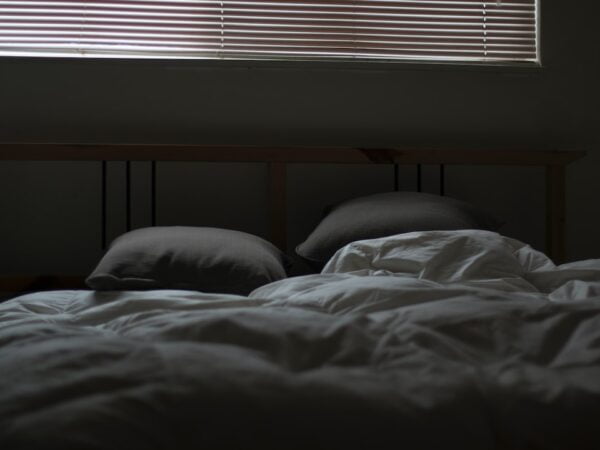
The Surprising Connection Between Sleep and Concentration: How Proper Rest Can Boost Your Productivity
Sleep is a fundamental aspect of our overall health and well-being. It is during sleep that our bodies repair and rejuvenate, allowing us to wake up feeling refreshed and ready to take on the day. However, sleep is not just important for physical health; it also plays a crucial role in enhancing concentration and productivity.
When we sleep, our brains go through different stages of sleep, each with its own purpose and impact on cognitive function. These stages include non-REM sleep, which is characterized by slow brain waves, and REM sleep, which is associated with dreaming. During these stages, our brains consolidate memories, process information, and restore mental energy.
In addition to the different stages of sleep, neurotransmitters and hormones also play a significant role in regulating sleep and concentration. Neurotransmitters like serotonin and dopamine help regulate mood and alertness, while hormones like melatonin help regulate our sleep-wake cycle. When these neurotransmitters and hormones are out of balance due to inadequate sleep, it can have a negative impact on our ability to concentrate.
Key Takeaways
- Sleep is crucial for concentration and productivity.
- Understanding the science of sleep and concentration can help improve both.
- Sleep deprivation can have serious consequences on concentration.
- Different types of concentration are affected by sleep in different ways.
- Improving sleep quality can lead to better concentration and productivity.
Understanding the Science of Sleep and Concentration
To understand how sleep affects concentration, it is important to understand the different stages of sleep and their impact on cognitive function. Non-REM sleep consists of three stages: N1, N2, and N3. N1 is the transition stage between wakefulness and sleep, while N2 is a deeper stage of sleep where brain activity slows down even further. N3 is the deepest stage of sleep, also known as slow-wave sleep.
During slow-wave sleep, the brain consolidates memories and processes information from the previous day. This stage is crucial for learning and memory retention. Without enough slow-wave sleep, our ability to concentrate and retain information can be significantly impaired.
REM sleep, on the other hand, is associated with dreaming and emotional processing. During REM sleep, the brain is highly active, and this stage is important for creativity and problem-solving. Lack of REM sleep can lead to difficulties in concentration and problem-solving abilities.
Neurotransmitters and hormones also play a crucial role in regulating sleep and concentration. Serotonin, for example, is a neurotransmitter that helps regulate mood and alertness. Low levels of serotonin can lead to feelings of fatigue and difficulty concentrating. Dopamine, another neurotransmitter, is involved in reward and motivation. When dopamine levels are low, it can be harder to stay focused and motivated.
Melatonin, a hormone produced by the pineal gland, helps regulate our sleep-wake cycle. It is released in response to darkness and helps us feel sleepy at night. Disruptions in melatonin production, such as exposure to bright lights at night or irregular sleep schedules, can interfere with our ability to fall asleep and stay asleep, leading to difficulties in concentration the next day.
The Consequences of Sleep Deprivation on Concentration
Sleep deprivation can have a significant impact on concentration and cognitive function. When we don’t get enough sleep, our brains are unable to properly consolidate memories and process information from the previous day. This can result in impaired memory, reduced attention span, and decreased productivity.
Research has shown that even one night of sleep deprivation can have a negative impact on concentration. A study published in the journal Sleep found that participants who were deprived of sleep for 24 hours performed significantly worse on cognitive tasks compared to those who had a full night’s sleep. They had difficulty sustaining attention, making decisions, and processing information accurately.
Chronic sleep deprivation, which occurs when we consistently fail to get enough sleep over an extended period of time, can have even more severe consequences on concentration. A study published in the journal Sleep Medicine Reviews found that chronic sleep deprivation is associated with impaired memory consolidation, reduced attention span, decreased reaction time, and decreased cognitive flexibility.
In addition to these cognitive effects, sleep deprivation can also have physical consequences that further impact concentration. Lack of sleep can lead to increased levels of stress hormones, such as cortisol, which can interfere with our ability to focus and concentrate. It can also weaken our immune system, making us more susceptible to illness and further impacting our ability to concentrate.
How Sleep Affects Different Types of Concentration
| Concentration Type | Hours of Sleep | Performance |
|---|---|---|
| Visual Attention | 6-7 hours | Improved |
| Working Memory | 7-8 hours | Improved |
| Decision Making | 8-9 hours | Improved |
| Creativity | 6-7 hours | Impaired |
| Reaction Time | Less than 6 hours | Impaired |
Sleep plays a crucial role in different types of concentration, including sustained attention, selective attention, and divided attention. Sustained attention refers to the ability to maintain focus on a task for an extended period of time. Selective attention refers to the ability to focus on one task while ignoring distractions. Divided attention refers to the ability to multitask and focus on multiple tasks simultaneously.
When we are sleep deprived, all of these types of concentration can be significantly impaired. Lack of sleep makes it harder to sustain attention on a task for an extended period of time, as our brains become fatigued and have difficulty maintaining focus. It also makes it harder to ignore distractions and stay focused on one task, as our brains become more easily distracted.
In terms of divided attention, lack of sleep can make it harder to multitask effectively. Our brains become less efficient at processing multiple tasks simultaneously, leading to decreased productivity and increased errors. This can be particularly problematic in situations that require quick decision-making and the ability to juggle multiple tasks at once, such as in the workplace or while driving.
For example, a study published in the journal Sleep found that sleep deprivation significantly impaired sustained attention and selective attention in participants. They had difficulty maintaining focus on a task for an extended period of time and were more easily distracted by irrelevant information. This can have serious consequences in situations that require sustained focus and attention, such as studying for exams or completing important work tasks.
The Link Between Sleep Quality and Concentration
In addition to sleep duration, sleep quality also plays a crucial role in concentration. Sleep quality refers to factors such as sleep efficiency, sleep latency, and sleep hygiene. Sleep efficiency refers to the amount of time spent asleep compared to the total time spent in bed. Sleep latency refers to the amount of time it takes to fall asleep. Sleep hygiene refers to the habits and practices that promote good sleep.
When we have poor sleep quality, it can have a negative impact on our ability to concentrate. For example, if we have difficulty falling asleep or staying asleep, it can lead to fragmented sleep and decreased sleep efficiency. This can result in feelings of fatigue and difficulty concentrating the next day.
Poor sleep hygiene can also interfere with our ability to get a good night’s sleep. Factors such as excessive noise, uncomfortable bedding, and exposure to bright lights before bedtime can all disrupt our sleep and make it harder to concentrate the next day.
On the other hand, good sleep quality can enhance concentration and cognitive function. When we have a consistent sleep schedule, create a relaxing sleep environment, and practice good sleep hygiene, we are more likely to get a restful night’s sleep and wake up feeling refreshed and alert.
Tips for Improving Sleep to Enhance Concentration
Improving sleep quality is essential for enhancing concentration and productivity. Here are some practical tips for improving sleep:
1. Establish a regular sleep schedule: Try to go to bed and wake up at the same time every day, even on weekends. This helps regulate your body’s internal clock and promotes better sleep.
2. Create a relaxing sleep environment: Make sure your bedroom is cool, dark, and quiet. Use blackout curtains or an eye mask to block out any light, and use earplugs or a white noise machine to drown out any noise.
3. Practice good sleep hygiene: Avoid stimulants like caffeine and nicotine before bedtime, as they can interfere with your ability to fall asleep. Also, limit your exposure to electronic devices, such as smartphones and tablets, as the blue light emitted by these devices can disrupt your sleep-wake cycle.
4. Develop a bedtime routine: Establish a relaxing routine before bed to signal to your body that it’s time to sleep. This could include activities such as reading a book, taking a warm bath, or practicing relaxation techniques like deep breathing or meditation.
5. Exercise regularly: Engaging in regular physical activity can help promote better sleep. However, try to avoid exercising too close to bedtime, as it can increase alertness and make it harder to fall asleep.
6. Avoid napping late in the day: While napping can be beneficial for enhancing concentration and productivity, it’s best to avoid napping late in the day, as it can interfere with your ability to fall asleep at night. If you need to nap, try to keep it short (around 20-30 minutes) and nap earlier in the day.
By implementing these tips and strategies, you can improve your sleep quality and enhance your concentration and productivity throughout the day.
The Role of Napping in Improving Concentration
Napping can be a powerful tool for improving concentration and productivity. When we take a short nap during the day, it can help us recharge and restore mental energy, making us more alert and focused.
The key to effective napping is finding the right balance. Napping for too long or too close to bedtime can interfere with nighttime sleep and make it harder to fall asleep at night. On the other hand, napping too little or not at all can leave us feeling fatigued and decrease our ability to concentrate.
The ideal nap duration is around 20-30 minutes. This is long enough to provide a boost in alertness and concentration without entering into deeper stages of sleep that can leave us feeling groggy upon waking. Napping for longer than 30 minutes can lead to sleep inertia, which is the feeling of grogginess and disorientation that can occur upon waking from a deep sleep.
The timing of your nap is also important. It’s best to nap earlier in the day, ideally in the early afternoon, to avoid interfering with nighttime sleep. Napping too late in the day can make it harder to fall asleep at night and disrupt your sleep-wake cycle.
By incorporating short, well-timed naps into your daily routine, you can enhance your concentration and productivity throughout the day.
The Connection Between Sleep Disorders and Concentration Problems
Sleep disorders can have a significant impact on concentration and cognitive function. Common sleep disorders that can interfere with concentration include insomnia, sleep apnea, and restless leg syndrome.
Insomnia is characterized by difficulty falling asleep or staying asleep. It can result in fragmented sleep and decreased sleep efficiency, leading to feelings of fatigue and difficulty concentrating the next day. Insomnia can be caused by a variety of factors, including stress, anxiety, and poor sleep habits.
Sleep apnea is a disorder characterized by pauses in breathing during sleep. These pauses can disrupt sleep and lead to fragmented sleep patterns. Sleep apnea is often accompanied by loud snoring and excessive daytime sleepiness. The interrupted sleep caused by sleep apnea can have a negative impact on concentration and cognitive function.
Restless leg syndrome is a neurological disorder characterized by an irresistible urge to move the legs, often accompanied by uncomfortable sensations. These sensations typically occur at night and can make it difficult to fall asleep or stay asleep. The disrupted sleep caused by restless leg syndrome can lead to difficulties in concentration and cognitive function the next day.
If you suspect that you have a sleep disorder that is interfering with your concentration, it is important to seek medical treatment. A healthcare professional can help diagnose and treat your sleep disorder, allowing you to improve your concentration and overall health.
The Benefits of Using Technology to Improve Sleep and Concentration
Technology can play a valuable role in improving sleep and concentration. There are a variety of tools and devices available that can help track your sleep, create a relaxing sleep environment, and block out distractions.
Sleep tracking apps, for example, can help monitor your sleep patterns and provide insights into your sleep quality. These apps use sensors in your smartphone or wearable device to track your movement and provide data on your sleep duration, sleep efficiency, and sleep stages. By tracking your sleep patterns, you can identify areas for improvement and make adjustments to enhance your sleep quality.
White noise machines can also be beneficial for improving sleep and concentration. These devices produce a constant, soothing sound that helps mask background noise and create a calming sleep environment. White noise can help drown out distractions and promote better sleep.
Blue light blocking glasses are another useful tool for improving sleep and concentration. These glasses filter out the blue light emitted by electronic devices, such as smartphones and tablets, which can interfere with our sleep-wake cycle. By wearing blue light blocking glasses in the evening, you can reduce your exposure to blue light and promote better sleep.
While technology can be helpful in improving sleep and concentration, it is important to use it wisely. Avoid using electronic devices too close to bedtime, as the blue light emitted by these devices can interfere with your ability to fall asleep. Instead, establish a technology-free wind-down routine before bed to signal to your body that it’s time to sleep.
Prioritizing Sleep for Optimal Concentration and Productivity
In conclusion, sleep plays a crucial role in enhancing concentration and productivity. Adequate sleep is essential for cognitive function, memory consolidation, and overall well-being. Lack of sleep can have a negative impact on concentration, leading to impaired memory, reduced attention span, and decreased productivity.
By understanding the science of sleep and concentration, we can better appreciate the importance of prioritizing sleep in our daily lives. Sleep quality, including factors such as sleep duration, sleep efficiency, and sleep hygiene, also plays a significant role in concentration. By implementing practical tips for improving sleep, such as establishing a regular sleep schedule and creating a relaxing sleep environment, we can enhance our concentration and productivity.
Napping can also be a valuable tool for improving concentration and productivity. By taking short, well-timed naps during the day, we can recharge and restore mental energy, making us more alert and focused.
It is important to recognize the connection between sleep disorders and concentration problems. If you suspect that you have a sleep disorder that is interfering with your concentration, it is important to seek medical treatment.
Finally, technology can be a useful tool for improving sleep and concentration. Sleep tracking apps, white noise machines, and blue light blocking glasses can all help promote better sleep and enhance concentration.
By prioritizing sleep and implementing these tips and strategies, we can optimize our concentration and productivity, leading to improved overall well-being.
FAQs
What is the relationship between sleep and concentration?
Sleep and concentration are closely related. Lack of sleep can lead to difficulty in concentrating, while getting enough sleep can improve concentration and cognitive function.
How much sleep do I need for optimal concentration?
The amount of sleep needed for optimal concentration varies from person to person, but most adults need between 7-9 hours of sleep per night.
What are the consequences of sleep deprivation on concentration?
Sleep deprivation can lead to decreased concentration, impaired cognitive function, and decreased productivity. It can also increase the risk of accidents and errors.
How can I improve my concentration through sleep?
To improve concentration through sleep, it is important to establish a regular sleep schedule, avoid caffeine and alcohol before bedtime, and create a comfortable sleep environment. Additionally, practicing relaxation techniques such as meditation or deep breathing can help improve sleep quality and concentration.
What are some common sleep disorders that can affect concentration?
Common sleep disorders that can affect concentration include insomnia, sleep apnea, and restless leg syndrome. These disorders can disrupt sleep and lead to daytime sleepiness and difficulty concentrating.


















